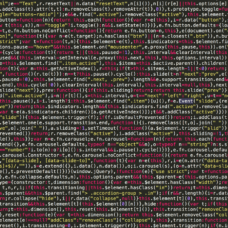A German court recently upheld that federal entities can parse any and all data sent through a major internet hub known as De-Cix.
Many of you reading this might remember George Orwell’s infamous book 1984.
You know, the dystopian future where the government or “Big Brother” watches everything you do.
That future has plenty of roots in today’s world and now, after a court ruling from a German court over the legality of internet spying, we’ve come even closer to an Orwellian reality.
Frankfurt-based internet hub De-Cix contested that the Federal Intelligence Service (Bundesnachrichtendienst or BND) no longer had the right to sift through all of De-Cix’s data. They alleged that the BND could only parse up to 20% of De-Cix’s data.
Unfortunately for De-Cix and its users, a court did not agree with them.
A Compelling Case, a Narrow Loss
De-Cix had high hopes when they took the German institution to court in March of last year. Changes to Germany’s laws made their case against legal spying stronger.
But the complaint dates back even further to 2016 when De-Cix alleged that this entity was taking all data, carte blanche. They also alleged that the BND was monitoring local communications as well as international communications.
For reference, 20% of De-Cix’s data is around 5 TB per second and 1,200 communication lines. Now, add this knowledge to the fact that the BND sometimes passes information along to the National Security Agency (NSA) here in the U.S.
Despite a compelling case, a Leipzig federal administrative court dashed De-Cix’s hopes for protection last May. The judge’s claim boiled down to an issue of semantics rather than security.
The judge claimed that, because De-Cix acted as a third party for telecom services, it could not act on behalf of those using the telecom service. If this sounds flimsy to you, that’s because it is flimsy.
But German courts have a history of favoring the BND over citizen protection.

Government Rulings Seem to Support Spying
The group Reporters Without Borders also appealed to both the Leipzig and Karlsruhe courts when they went up against the BND. They alleged that the BND spied on journalists and their sources.
Under the G10 commission, these communications should be protected, they said. The BND’s actions violated the G10 telecom secrecy law. The group also noted that the BND’s spying violated both freedom of profession and free expression.
But both courts claimed that Reporters Without Borders didn’t have enough evidence.
De-Cix mirrored comments that Reporters Without Borders made when they released their statement on the court ruling:
“The decision raises questions concerning effective legal protection: on the one hand, where, in the absence of detailed knowledge, citizens are unable to demonstrate their own concern and their claims are therefore dismissed, and, on the other hand, the obligated undertakings [De-Cix] cannot enforce their rights…”
Despite De-Cix’s loss, they plan to appeal to the Karlsruhe court, as well.

A Beacon of Hope Amidst the Data Mining
It isn’t all caching and information theft in this story, however.
Reporters Without Borders did take home a significant victory this year. It revolved around scrubbing journalist information such as phone numbers from BND directories.
Though won last year, the court case’s ruling didn’t fully take effect until this year. But, you can now remove yourself from the BND directory with a few mouse clicks and protect your digital data just a little bit more.
Though VPNs are not fully protected from the BND, they can help secure data, too.



















Comments (0)
Most Recent